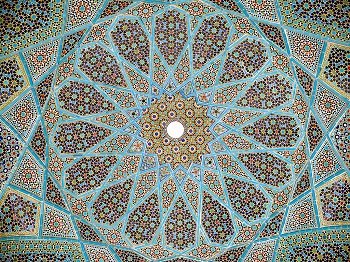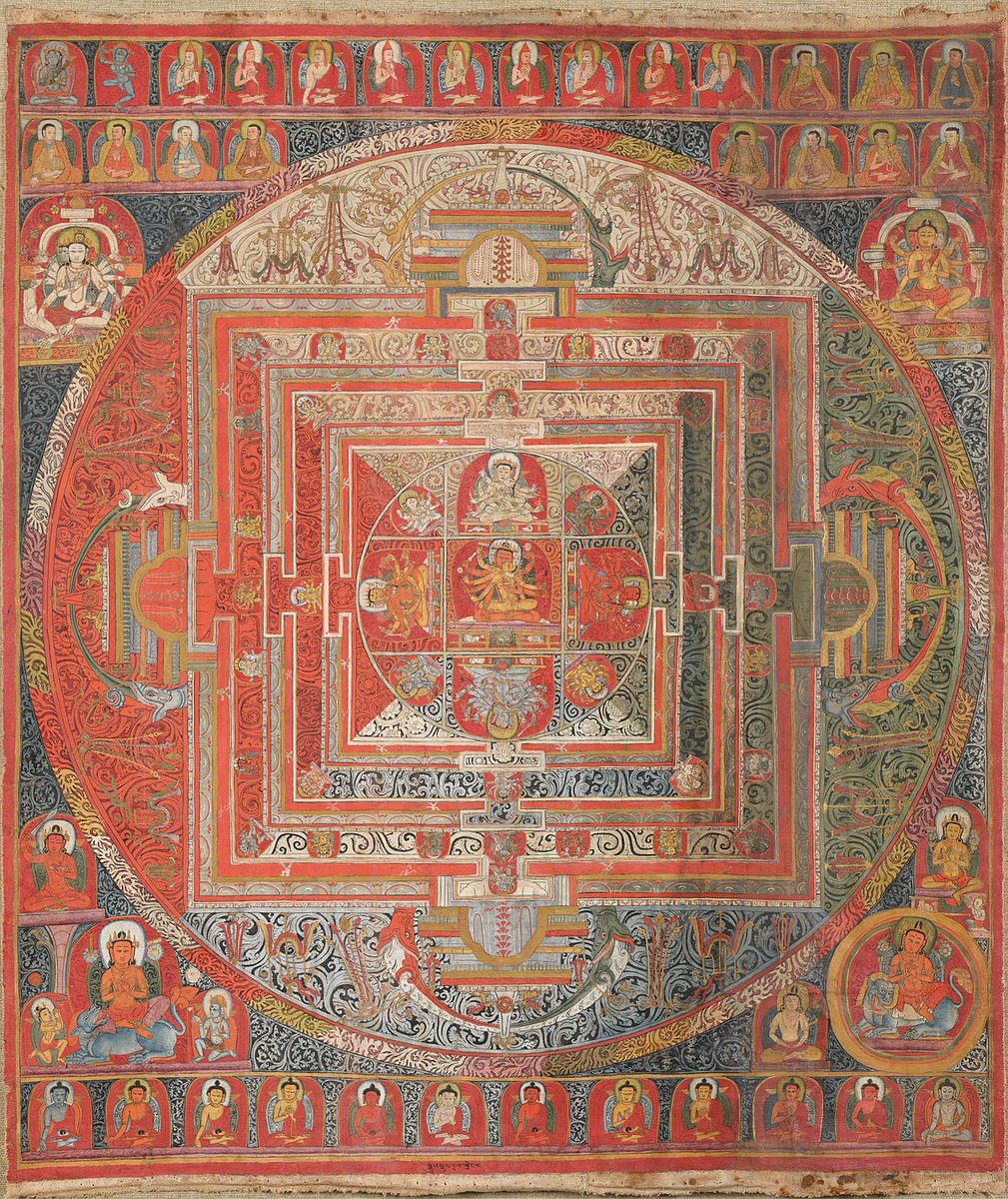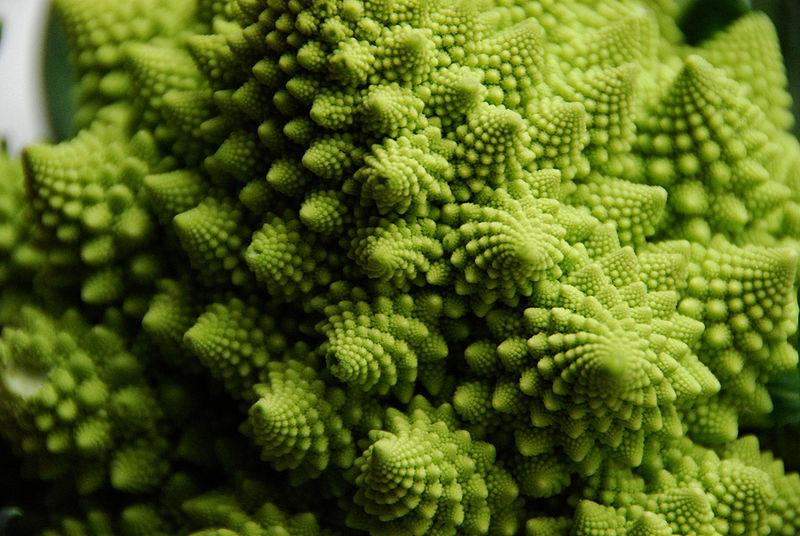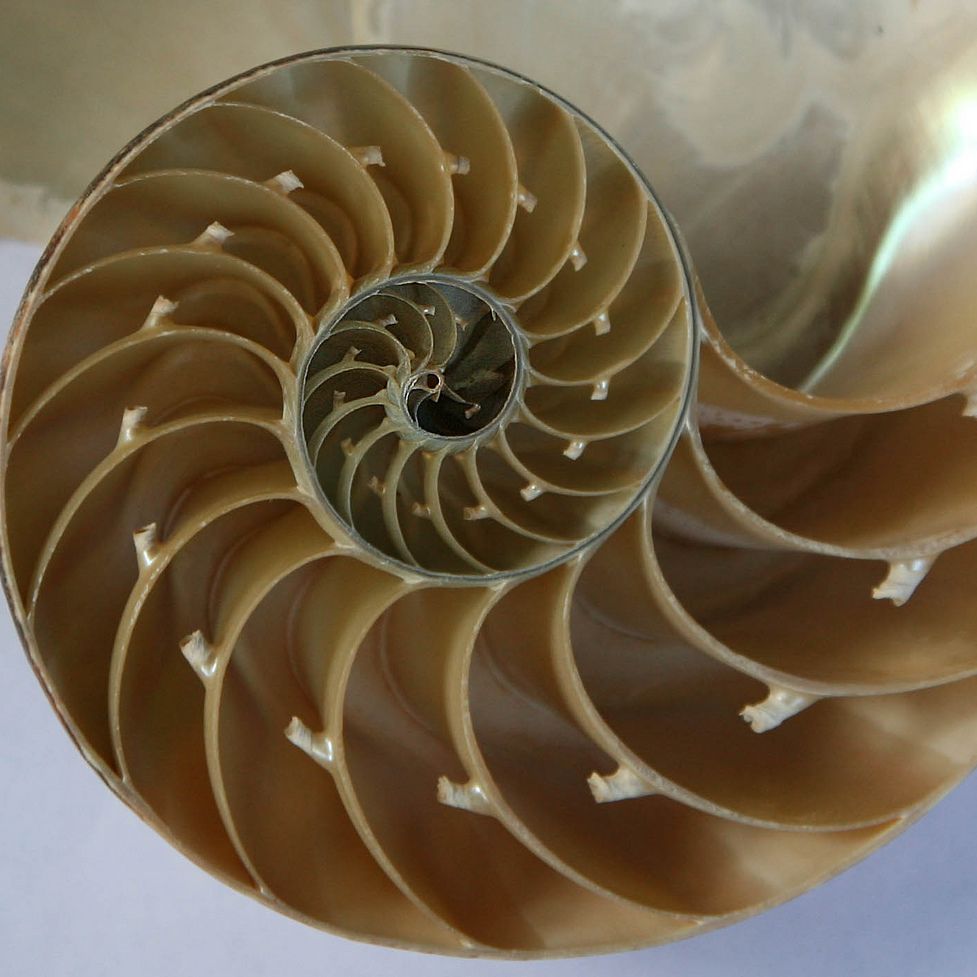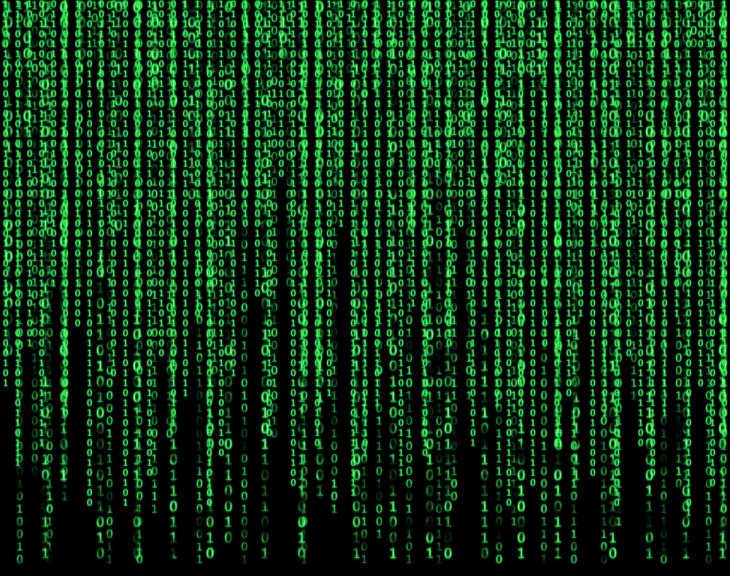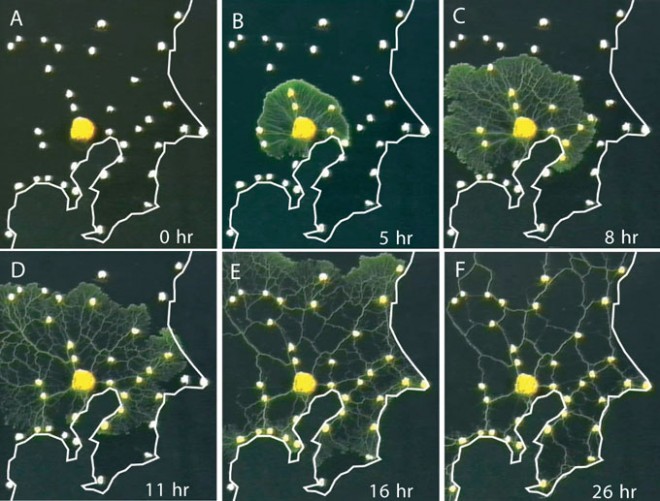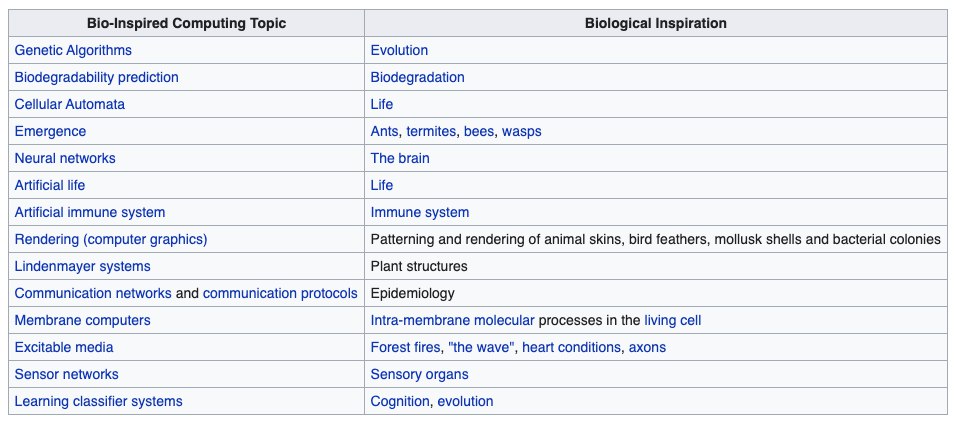Joining @threadapalooza - a challenge to write 100 tweets about anything. My topic is what I'll vaguely call "interconnected patterns" and our philosophical & scientific quest for discovering the underlying code for reality. No idea where I'm going with this so buckle up! (1/100)
A note before I get started: if that doesn't sound interesting, you can mute this thread by clicking on the three dots in the top right corner of the tweet and selecting "mute this conversation" - no hard feelings, I won't even know! (2/100)
To me, physics is the study of the grammar of reality - all about uncovering the grammatical rules governing the language of the world. Many are dreaming of a "theory of everything", but trying to discover these underlying patterns is not new - see sacred geometry (3/100)
The notion that a god is the geometer of the world may sound like a lot of woo-woo (I'm not religious myself), but if you get rid of the idea of an intelligent maker, you're still left with the interesting concept of mathematical principles governing the rules of nature (4/100)
Why is it interesting? Because when you have mathematical rules, you can start making predictions. The world is not as random anymore. That's maybe why most religions embraced the concept of sacred geometry - e.g. see islamic geometric patterns & hindu mandalas (5/100)
Knowing where a comet will be at a specific point in time, forecasting waves and the weather (even though good old chaos leaves us blind beyond a few days) - is it maths or is it magic? (6/100)
Physics (ancient greek: φυσική, "knowledge of nature") seeks to uncover the magic / mathematical patterns that govern the world. We currently use lots of approximations, but still - it's cool to see patterns repeating across seemingly disconnected parts of nature (7/100)
For instance: take fractals. From blood vessels to coastlines and snowflakes and many plants, you can find fractals everywhere. Even the universe is fractal-like up to a certain point - see fractal cosmology (8/100)
In general, nature seems to be built on a set a limited patterns repeated across many elements: spirals, trees, bubbles, stripes... Natures is also much more symmetrical than you'd think, from the bilateral symmetry of your face to the fivefold symmetry of a starfish (9/100)
These are simple patterns, but it makes you wonder: is everything made of patterns we can uncover if we look close enough? How much randomness in these patterns? How do individual patterns connect with each other & does the concept of individual patterns even make sense? (10/100)
I still haven't read that book (currently part of my antilibrary) but I'm hoping The Timeless Way of Building by Christopher Alexander touches upon these questions around patterns in nature & the nature of patterns (11/100) https://nesslabs.com/antilibrary
Alexander's ambition for a pattern language contrasts with the view of one of my favorite authors, Borges, who teased cosmologists in The Library of Babel - an infinite library with all books ever written & that will be written as a metaphorical replica of the universe (12/100)
“The Universe (that some call the Library) is composed of an undefined, maybe infinite number of hexagonal galleries” Since the library contains all the books, it must contain a catalogue of all the books - but then, there must be a catalogue containing the catalogue (13/100)
Because of this infinite regression, attaining complete knowledge seems impossible. Other conundrums: can we study the universe/library while being a part of it - living within it? And would reading all the books give you an understanding of the universe as a whole? (14/100)
This story asks profound questions about what it means to conduct scientific research & to try to understand the fabric of the world. Borges was (I think) anti-reductionist in that he didn't believe in fundamental building blocks forming a universal language of the world (15/100)
This may be tangential but I cannot avoid mentioning Leibniz here, who tried to create an alphabet of human thought. Only heard about it recently, and honestly quite confused about this one - I think it had something to do with universal ideograms? (16/100)
Okay apparently it was part of his characteristica universalis, which was an artificial language where grammatical and logical structure would coincide so reasoning could be reduced to calculation  (17/100)
(17/100)
 (17/100)
(17/100)
Maybe I digress (that was expected from a 100-tweet thread), but it's interesting to witness this recurring quest for a unifying language, whether for human thought or for the patterns/grammar governing the universe (18/100)
It's reminiscent of pansophism, not in the sense of an all-knowing deity, but as the pedagogic idea of universal wisdom. See Pansophiæ Prodromus by John Amos Comenius, considered by many a founding father of modern education (19/100)
This quest for a universal language is dual: decoding the underlying language of the universe, and crafting our own universal language - maybe trying to go back to a mythical state of humanity when only one language was originally spoken (20/100)
An interesting intersection of both sides of this quest is physics-based procedural animation in video games, where computation is performed using discrete values to approximate the laws of physics within a simulation (21/100)
I say both sides because physics-based procedural animation requires to understand the laws of physics (decoding the underlying language of the universe) + to craft a new language to create a world with its own (approximate) laws (22/100)
Question: if video games use an approximation of the pattern language of our universe, is our own universe governed by an approximation of a pattern language coded at a higher level? Okay, didn't expect to get to the simulation hypothesis this quickly in the thread (23/100)
If you're not familiar with it, the simulation hypothesis states that our reality could be an artificial simulation. Highly recommend reading "Are you living in a computer simulation?" by Nick Bostrom to get the gist of the theory (24/100)
"Enormous amounts of computing power will be available in the future (...) One thing that later generations might do (...) is run detailed simulations of their forebears (...) we are likely among the simulated minds rather than among the original biological ones." (25/100)
But how do you even test such a hypothesis? Again, going back to Borges' library of Babel, how can you study a system as a whole from within the system? And, would confirming the hypothesis end the simulation? (26/100)
My first instinct: it doesn't matter whether we are living in a simulated world or if this is the "real" world - it has zero impact beyond generating cool ontological conversations. But then I can't resist the philosopher's curiosity described in the allegory of the cave (27/100)
Plato used the allegory to describe "the effect of education and the lack of it on our nature" - ultimately, seeking answers to these questions is a form of self-education, which I think is valuable in and of itself (28/100)
Taking a little detour here, but I'm a big believer in the power of education as a way to increase our collective intelligence and ensure the survival of our species - to me, this is one of the best investments humanity can make in our future (29/100)
In particular, there's a massive lack of evidence-based education. Beside spaced repetition, we have virtually zero tools that guarantee effective learning. Educational neuroscience / neuroeducation is early but I think can have a massive impact (30/100)
Re: epistemology, I realise that the value of knowing for the sake of knowing (knowledge > belief, known as the primary value problem) can be controversial - it's a highly subjective opinion rather than a well-established fact (31/100)
But I personally believe in absolute epistemic value. We may not have access to the whole territory. But if the world is akin to a video game, our willingness to "live" is (I highly subjectively think) correlated to our drive to explore the map (32/100)
So, back to the simulation hypothesis. I personally would love to know whether or not we live in a simulation, even if it doesn't have any direct impact on my existence. So, how do you find out? (33/100)
Short of a friendly Morpheus to offer us the red pill a la Matrix (no incel reference here) I have no idea, but apparently it involves something called quantum chromodynamics and anisotropy - please don't ask me what these are (34/100)
Okay, I'm only 35% done with this challenge, so I guess I'll have a look. First, quantum chromodynamics (QCD) then anisotropy. Wikipedia to the rescue (35/100)
"QCD is the theory of the strong interaction between quarks and gluons, the fundamental particles that make up composite hadrons such as the proton, neutron & pion. QCD is a type of quantum field theory called a non-abelian gauge theory, with symmetry group SU" Hmm what? (36/100)
"Anisotropy is the property of a material which allows it to change or assume different properties in different directions as opposed to isotropy. It can be defined as a difference, when measured along different axes, in a material's physical or mechanical properties" (37/100)
Grateful there's a French anisotropie page - I get it now. Bones are anisotropic as they have ≠ properties depending on their orientation, same with computer screens where colors change depending on where you're standing. Not sure about the link to the simulation theory (38/100)
Liquids tend to be isotropic whereas crystals tend to be anisotropic (did you know there's an area of science called crystallography & the UN proclaimed 2014 the international year of crystallography?) Now I'm thinking again about geometry and natural patterns (39/100)
Paraphrasing random internet author (credit where credit's due) William Graham: many natural patterns seem to be complex networks that have a physical architecture (form) + dynamic processes (function) that connect and control the pattern components within the system (40/100)
Within such networks, it's hard to tell where the nodes end and where the whole starts. Think about your own body: each cell is an individual component; so is each organ, and so on and so forth. But when you move, your whole body moves as one unit (41/100)
That's the Holon Theory (where a holon is at once a whole and a part) and a holarchy is a hierarchy of self-regulating holons that work 1st as autonomous wholes in supraordination to their parts, 2nd as subordinate parts, 3rd in coordination with their local environment (42/100)
A bit meta, but that's what I'm taking about here (43/100) https://twitter.com/anthilemoon/status/1335617132965617664
In "Entangled Life" @MerlinSheldrake talks about this challenge with fungi - where does the individual unit (the tip) stops, where does the whole (the mycelium) starts? Is a swarm a multitude of units or one individual entity? How do you delimitate parts of a network? (44/100)
His description of mycelium as a living labyrinth as well as the concept of the Wood Wide Web - where underground roots, fungi and bacteria act as a network for many living species - makes you question the nature of living beings as individual units (45/100)
I first came across the concept of Wood Wide Web in the book The Hidden Life of Trees (thanks @singer_francois for recommending!) and it has forever changed the way I feel when I walk in a forest - instead of individual plants, I see a giant living organism (46/100)
But then, why stop at the forest as an individual organism? Whether you zoom in on the infinitely small or zoom out on to infinitely large scales, individual / categorical units feel arbitrary (47/100)
That's what Borges was sensing - yes always going back to Borges: "It is clear that there is no classification of the Universe not being arbitrary and full of conjectures" (48/100)
Ha - but! in mathematics, arbitrariness is not bad. It corresponds to the universal quantifier ∀ which means you may select any arbitrary choice & the statement will still hold, e.g. "Given any arbitrary integer, multiplying it by two will result in an even number" (49/100)
That's as close as you can get to a universal pattern language & that's what researchers seeking a Theory of Everything are after: an all-encompassing framework for how the world works, the grammar of reality (50/100)
One of the main challenges at the moment is to reconcile general relativity and quantum mechanics - both do a great job in their separate fields of relevance, but are incompatible at extremely small scales (51/100)
Research in quantum gravity such as string theory is promising, but the issue (again) is the lack of testability: we currently can't make actual predictions & design experiments to (in)validate them, and the energy scales are so high we may never be able to (52/100)
Even if we were able to put the theory to the test... extreme sensitivity to initial conditions would lead to mathematical chaos + there are limitations due to event horizons which would make it *very* difficult to apply such a universal theory to make actual predictions (53/100)
All these inherent limitations feel frustrating and brings me back to the challenge of studying a system from within the system - can you understand the system as a whole when you're "trapped" inside it? (54/100)
The limitations of the system include our limited mind, e.g. @Derektracy1 described 5 levels of mentalization in a lecture last year, from the simple yet controversial "I exist" of a spider to the higher-order metacognitive skills of homo sapiens (55/100)
With the obvious question: why would such layers of consciousness stop at 5? Why not higher levels? And the scary part: since a spider can't comprehend our existence / how our minds work, could *we* recognise a higher form of consciousness if we were in its presence? (56/100)
To me, this is partly why the simulation hypothesis is attractive. In the future & with enough computational power, the best way to study humanity may be to re-create our system so we can observe it as a whole, from the outside (57/100)
Looking at the state of our current video games it would be narrow-minded to not consider the possibility that this future has already happened. I mean we already got "Spore" & "Evolution: The Game of Intelligent Life" and video games / life simulations are evolving fast (58/100)
So, that's one way to study the pattern language of the world: by re-creating a simulated world based on increasingly accurate laws & observing it. The other way would be to get a bird's-eye view of our actual world, the current educational / scientific approach... (59/100)
... which as discussed earlier may have inherent limitations. Education comes from Latin ēdūcō ("I lead forth, I raise up") from ē- ("from, out of") & dūcō ("I lead, I conduct") and this idea of "raising up" is interesting - can we together raise above these limitations? (60/100)
This ideal of raising our collective consciousness is reminiscent of the noosphere, the "sphere of reason" as first described by biogeochemist Vladimir Vernadsky, currently researched by the Global Consciousness Project (61/100)
Unfortunately, as attractive as it sounds, nobody has ever managed to reproduce their results and the work of the GCP is largely considered to be pseudoscience (62/100) https://twitter.com/anthilemoon/status/1301943529137152001
While I don't believe in the noosphere as researched by the GCP (see above - they're trying to measure shifts in collective consciousness during global events using dubious methods), it's hard to deny the internet has created a form of noosphere (63/100) https://twitter.com/anthilemoon/status/1272233051892973568
... where the noosphere is defined as a global network of minds, similar to the wood wide web of the biosphere. Which shows how much human innovation may unconsciously emerge from biomimetics & suggests we could be even more intentional in using bio-inspired computing (64/100)
One of the coolest examples of how similar human-made and nature-made networks are is a study where researchers observed that slime mold connected itself to food sources in a design that was nearly identical to the Tokyo railway system (65/100)
The model has since been used to provide a starting point for improving efficiency for self-organised networks without centralised control. Here are more examples of bio-inspired computing research - love how some just say "life" as biological inspiration (66/100)
These models can be a great way to get a bird's eye view of the system we live in and to study our sphere of existence as an interconnected network rather than the sum of its parts - an approach aligned with the emergent properties of life itself (67/100)
The Tokyo map experiment showing how similar the behaviour of a human network is to the one of other organisms also breaks the artificial barrier of self-identity ("me" vs "the world") & illuminates how we are not an individual part of an ecosystem - we are an ecosystem (68/100)
I know I'm getting quite philosophical here, but it really has profound implications for how we interact with our world. When you realise that seeing each individual human as an atomic unit of life is absurd, you start caring more about the ecosystem (69/100)
This ego-dissolution experience and feeling of oneness / interconnectedness with the world is a common experience with psychedelics - okay, I really didn't expect to talk about psychedelics in this thread, but here we are (70/100)
Huxley describes it as having a "not-I" instead of an "I", the "mind at large" free from psychological & biological filters to directly interact with reality - a notion that's obviously attractive to those who want to understand the underlying patterns of the universe (71/100)
There's very little research, but many psychonauts consider synesthesia (smelling colors, seeing sounds) as evidence of the removal of such psychological & biological filters that allow us to more directly experience the world (72/100)
However this hypothesis is again untestable: how can you tell the difference between patterns of perception and actual grammatical rules governing the language of the world? This is the eternal (and maybe unsolvable) mind-body problem (73/100)
Best formulated by Thomas Nagel who asked: what is it like to be a bat? arguing that some facts may lie "beyond the reach of human concepts" - not everyone agrees with the thesis but the distinction between subjective and objective concepts is interesting nonetheless (74/100)
It leads to questions such as: does the use of echolocation make a bat's reality is less valid than ours? Can our highest level of knowledge only be a perceptual / subjective point of view? Re: scientific research, it even possible to accurately describe reality? (75/100)
And, back to the simulation hypothesis, how can we know that we live in the base reality? I don't know about you, but to me these are dizzying thoughts (76/100)
When considering the concept of a base reality, I can't help but to think about the Garden of Forking Paths by Borges (him again!), foreshadowing the many-worlds interpretation of quantum mechanics (77/100)
In a novel described in the short story, all possible outcomes of an event occur simultaneously & all of these outcomes lead to further proliferations of possibilities. Base reality is questioned both by the story within the story & by the proliferation of forking paths (78/100)
That's how you get multiverses as seen in some versions of string theory. Problem: as with the concept of base reality in the simulation theory, the idea of multiverses created by infinite bifurcation can't be empirically falsified (79/100)
Whether you consider reality vs perception, base reality vs simulation, or universe vs multiverse, the challenge is the same & seems to be insurmountable: you seemingly cannot understand the whole of the network & decode the entire pattern language from within the system (80/100)
A game I liked to play as a kid was to take a piece of paper and to write 𝒜𝓃𝓃𝑒-𝐿𝒶𝓊𝓇𝑒 𝒾𝓈 𝓌𝓇𝒾𝓉𝒾𝓃𝑔: "𝒜𝓃𝓃𝑒-𝐿𝒶𝓊𝓇𝑒 𝒾𝓈 𝓌𝓇𝒾𝓉𝒾𝓃𝑔" - I loved how I had just created a world in which I was doing the same thing as in my current "base" world (81/100)
It shows how easy it is to navigate "downstream" from a universe to another one, but paper Anne-Laure can't just come meet me in my base world, video game characters can't leave the game & you can't go back in time to explore alternative paths after going through a fork (82/100)
What's more, an infinite system makes it ever harder / impossible to escape: if the universe is really accelerating its expansion, then it’s going to get infinitely large both in terms of time & space... (83/100)
... And that's the ultimate conundrum: if you have an infinite amount of time with an infinite number of combinations, then every possible outcome (no matter how unlikely) is going to happen many times over and over again (84/100)
As Borges puts it: "In an infinite stretch of time, the number of possible permutations must be run through, and the universe has to repeat itself" - so logical yet so hard to intuitively grasp! (85/100)
This may sound like armchair philosophy, but theoretical physicists are seriously considering this possibility. It's honestly impossible to not be mind blown by the implications of such a theory: you'd infinitely be born and live and die again and again and again (86/100)
I know I've been jumping around from natural geometry to the simulation theory, quantum physics, the multiverse & even psychedelics, but to me all these topics are interconnected - they're about our ambitious quest to reconcile mind and reality (87/100)
Ambitious = potentially impossible. Does it mean we should stop looking for answers? If reality & the future will forever remain unknowable, should we just live within the realm of our present perceptions and stop probing the universe for intrinsically limited patterns? (88/100)
As I mentioned earlier in this thread, I personally believe in intrinsic epistemological value - knowing for the sake of knowing, even if there's no hope for absolute knowledge (89/100)
The only absolute value I can think of is zero. An absolute description would be possible in a universe that's completely empty & devoid of events but ours is full of chaos. Maybe the inability to reach absolute knowledge is an artefact of life & we should be grateful (90/100)
Infinite connections, infinite combinations, infinite networks of forking paths... These are both the reason why we exist and the reason why we may never be able to decode the entire system by uncovering a theory of everything (91/100)
But the joy in exploring your little corner of the universe, in asking hard questions and performing thought experiments, in drawing a map even though we may never know the whole territory... To me that joy is part of why I'm grateful I was born human (92/100)
And by born human I mean that for a very brief period in time a bunch of atoms are interacting together to let Anne-Laure experience the world. "I find it elevating that our universe permits the evolution of molecular machines as intricate and subtle as we" - Carl Sagan (93/100)
There could be nothingness, and instead there is somethingness! How amazing, seriously. If the price we have to pay is the impossibility to fully map the system we live in, but we still have the agency to explore the territory, that's a very small price indeed (94/100)
How and why our universe exists is the ultimate question, which humanity has grappled with for thousands of year. How could everything have come from nothing? Considering the odds, can you believe our good luck? (95/100)
Whether Aristotle or Thomas Young was the last person to know everything (hotly debated topic), we have long been past the point any single individual can hope to learn everything there is to know in terms of human knowledge (96/100)
It may feel depressing, but I actually find it freeing. Instead of seeking to learn all that is known as an individual, we can seek to explore all that is unknown using our collective intelligence - the noosphere in the modern sense (97/100)
A network of minds studying a networked system, with an ever-expanding pool of discoveries... Basically an infinite game. Thinking about the interconnectedness of things always makes me grateful I get to play (98/100)
So here's to interconnected patterns and to our (potentially impossible) philosophical & scientific quest for discovering the underlying code for reality (99/100)
Okay I just realised @Threadpalooza is actually tomorrow, so I guess I'm a little bit early! Thanks so much @visakanv for giving me the opportunity to go through this stream of consciousness - All over the place but I hope it was fun to read! (100/100)
If you'd like to read more of my (more structured) musings, I have a newsletter all about how the mind works & how we can be more creative while taking care of our mental health!
Thanks for coming to my TEDapalooza :) (101/100) https://nesslabs.com/newsletter
Thanks for coming to my TEDapalooza :) (101/100) https://nesslabs.com/newsletter

 Read on Twitter
Read on Twitter